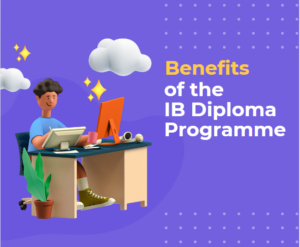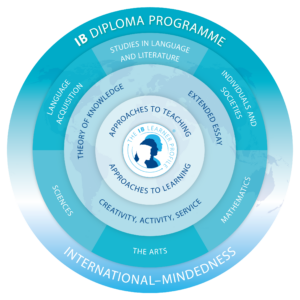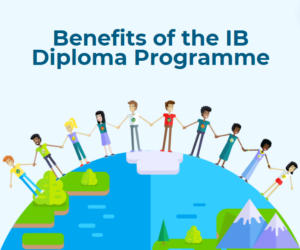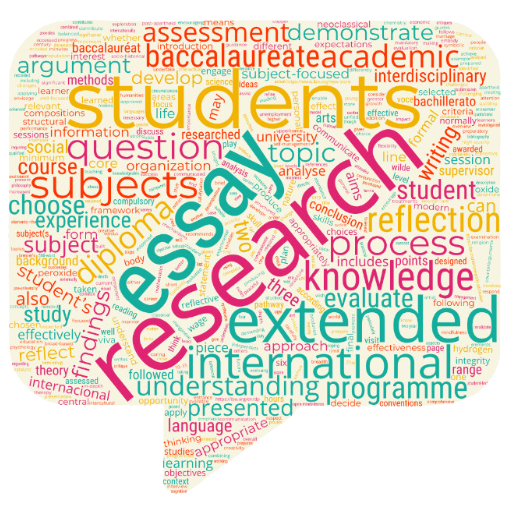 Are you ready to learn about one of the most prestigious educational programs out there? Let’s dive into the International Baccalaureate (IB) Diploma Programme (DP). This globally recognized two-year curriculum is designed for students aged 16 to 19 and is celebrated for its emphasis on critical thinking, research, and intercultural understanding.
Are you ready to learn about one of the most prestigious educational programs out there? Let’s dive into the International Baccalaureate (IB) Diploma Programme (DP). This globally recognized two-year curriculum is designed for students aged 16 to 19 and is celebrated for its emphasis on critical thinking, research, and intercultural understanding.
But what really sets the DP apart? It’s all about developing well-rounded individuals and equipping students with the skills and knowledge they need to thrive in higher education and beyond. Whether students are aiming for university success or looking to make a mark in the world, the DP offers a comprehensive curriculum that prepares them for whatever comes next.
What is the IB Diploma Programme?

The beauty of the IB Diploma Programme lies in its holistic approach to education. It allows students to dive into a broad and balanced curriculum, making meaningful connections between the various subjects they study. Students select courses from six subject groups which include:
- Studies in language and literature
- Language acquisition
- Individuals and societies
- Sciences
- Mathematics
- Arts
To get a deeper understanding, students study at least three subjects from these groups at the Higher Level (HL), which involves more in-depth study, while the remaining subjects are taken at the Standard Level (SL). Additionally, students study three core components designed to enrich the educational experience:
- Extended Essay (EE): This is a self-directed research paper of 4,000 words on a topic of the student’s choice and is a fantastic opportunity for students to delve into a subject they are passionate about.
- Theory of Knowledge (TOK): This course encourages students to explore the nature of knowledge and understand how we know what we know.
- Creativity, Activity, Service (CAS): CAS allows students to participate in various experiences for personal growth and community service beyond academics and is a great way for students to develop new skills and contribute to their communities.
IB Diploma Programme benefits for students
Participating in the IB Diploma Programme offers students a multitude of benefits that go beyond the classroom. Here are some key advantages:
- Enhanced academic skills – The DP curriculum is designed to help students develop strong analytical, critical thinking, and research skills. The programme’s various assessments prepare students for the academic challenges of university life.
- Time management and independence – By balancing coursework and extracurricular pursuits through CAS, students improve their time management abilities and learn to work independently.
- Global citizenship – Students are encouraged to develop international-mindedness and an appreciation for the differences in others.
- Enhanced communication skills – In addition to learning a second language, students further develop their communication skills through class discussions and presentations. This allows students to become more confident in expressing their ideas across subject areas.
IB learners develop international mindedness.
While the IB Diploma Programme is renowned for its rigorous academic framework, its benefits go far beyond traditional education. Students are not just learning subjects…they are connecting with a broader context and fostering an understanding of different languages, cultures, ideas, and global issues. The curriculum is designed to engage students with diverse perspectives, developing empathy and a deeper understanding of the world around them.
IB learning prepares students for university.
The IB Diploma Programme is recognized by colleges and universities around the globe, making it a standout credential for college applications. Even if students don’t earn the full IB diploma, they are often viewed favorably by universities. Why? Because IB students are seen as well-prepared, independent learners with strong academic and personal skills.
IB students stand out.
Research and feedback from university admissions officers consistently underscore the value of an IB education. Many institutions recognize the IB diploma as a mark of excellence, with some even offering advanced standing or course credit to IB graduates. This recognition reflects the rigorous and comprehensive nature of the IB curriculum.
Want to hear it straight from the source? The IB University Admission YouTube channel houses multiple testimonials from IB alumni and university professionals regarding how IB prepares students for postsecondary success.
IB learning key findings

To understand the profound impact that the IB Diploma Programme has on students, educators and communities, there is a wealth of research and key findings provided by the IB organization that you can explore. These findings offer insights into the DP’s effectiveness in preparing students for higher education, enhancing critical thinking skills, and fostering global mindedness. To dive deeper into these insights and discover how the DP and other IB programmes can benefit students and educators, visit the IB research key findings page on the IBO website.
IB program benefits for teachers
IB teachers have access to professional development.
One of the primary benefits for teachers involved in the IB is access to practical professional development. IB professional development is designed to help not only teachers, but administrators, counselors, and other school and district personnel to stay informed about the latest educational strategies and best practices, enabling them to deliver high-quality IB programs tailored to the needs of their students. The IB offers a range of professional development opportunities which include:
- Workshops (face to face, virtual, online and in-school)
- Conferences
- Self-paced modules
CASIE offers a range of IB-accredited workshops for educators, both online and in-person. These workshops are designed to enhance the skills and knowledge of IB teachers, ensuring they are well-prepared to deliver a world-class education to their students. All workshops are led by highly skilled, IB-trained practitioners and offer opportunities for educators to collaborate and learn from one another.
IB teachers earn qualifications that are university-recognized.
The IB partners with universities to offer IB educator certificates. These certificates are designed to enhance teachers’ understanding of IB methodologies and practices, preparing them to effectively teach IB courses.
For more information on IB educator certificates and the universities that offer them, visit the IB educator and leadership certificates (IBEC) section of ibo.org and view the most recently published IB Educator and Leadership Certificates University Directory.
IB teachers strive to teach beyond regular curricula.
IB teachers go above and beyond to stretch students’ learning beyond the walls of the classroom through several innovative methods:
- Encouraging real-world application of concepts learned. One of the hallmarks of the IB is its focus on real-world situations which prepares students for the complexities and challenges they will face beyond school. Teachers connect classroom learning with real-life contexts, making education more relevant and engaging for students. Whether it’s applying scientific principles to environmental issues or using mathematical models to solve real-world problems, IB teachers ensure that students understand how to apply their knowledge in practical settings.
- Promoting critical and analytical thinking. IB teachers help students develop critical and analytical thinking skills through reflection. They encourage students to think deeply and critically about the information they encounter, which is a valuable skill not only in academic settings but also in everyday decision-making and problem-solving.
- Embracing a holistic approach to education. IB teachers encourage students to engage in experiences through their IB courses and the DP core which help them to develop empathy, leadership, and a sense of social responsibility, preparing them to be, as stated in the IB mission statement, “active, compassionate, and lifelong learners.”
- Fostering global mindedness. IB teachers play a crucial role in instilling the value of global mindedness in their students. By incorporating diverse cultural perspectives and international issues into their lessons, they help students develop an understanding and appreciation of different cultures and viewpoints.
Sign up for CASIE online workshops
Click here to review CASIE’s IB-accredited workshop offerings. If you have any questions about registering for an IB workshop through CASIE, be sure to visit the Frequently Asked Questions page of the CASIE website.





